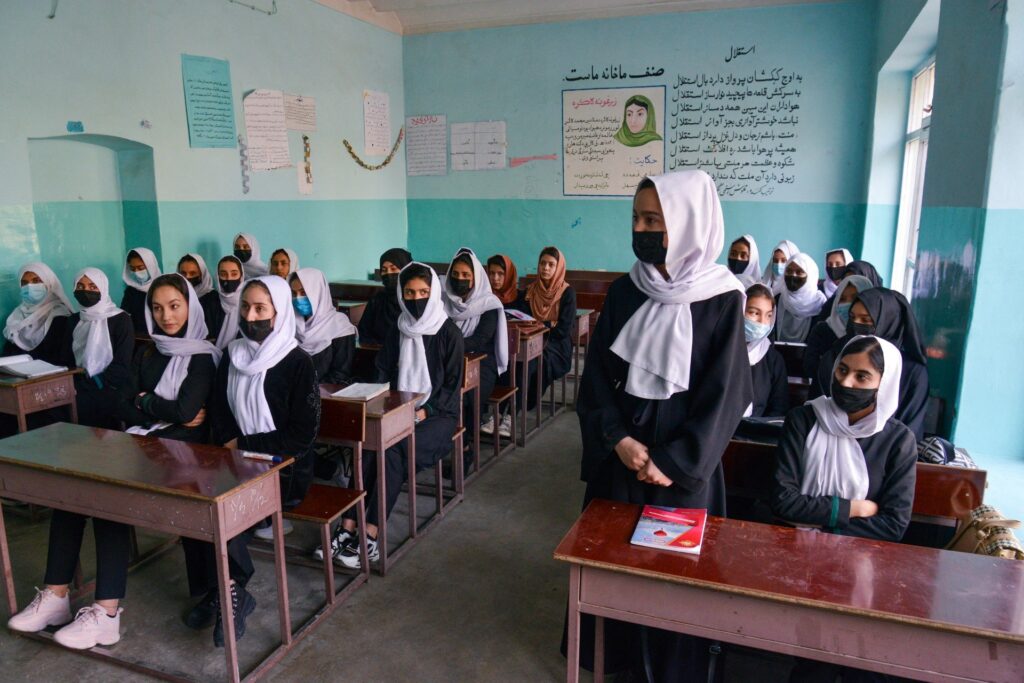
Photo from Bulent Kilic AFP/Getty Images
On Saturday morning, nearly 90 schoolgirls in Afghanistan’s northern Sari-i-Pul Province were reported falling ill by poisoning. 63 students and staff members at Kabod Aab School, along with 26 more students and staff members at the nearby Faiz Abad Girls’ School, suffered from shortness of breath, nausea, neurological and respiratory distress. Poisonous substances are believed to have been spread inside classrooms by unknown individuals. While over half of the individuals have been discharged from the hospital, many were required to be placed on ventilators. The elementary school girls in the attack were primarily between the ages of 6 and 12.
The poisonings occur against the backdrop of growing restrictions for women and girls in Afghanistan. This intimate attack on their bodies represents just one of many for these girls living within the battleground of the Taliban’s regime. While local Afghan officials have assigned responsibility for the attacks to local villagers over looming tensions, local residents cast doubt on these claims. The manipulation of an educational setting as a vehicle for violence underscores the extremity to which basic protections and freedoms are deprived for women and girls in Afghanistan. The Taliban continues to shut out women and girls from the public sphere of life, precipitating a dangerous environment, leaving them vulnerable to attacks.
Since 2021, following the U.S. troop withdrawal from Afghanistan, any social progress achieved for women and girls has quickly diminished, and continues to worsen. High school and university education has been banned, as well as access to public spaces such as gyms, parks, and more without a male escort. The Taliban’s mounting isolation of women and girls from public life has drawn criticism from the international community with the EU calling for an investigation into the “heinous” poisonings of these girls and female school teachers.
The Taliban’s actions undermine their hard sought after legitimacy from other countries, as their leaders seek international aid to alleviate Afghanistan’s dire humanitarian and economic crisis. Sodaya Bayani, an activist for education and womens’ rights, draws a parallel to similar crimes in neighboring countries, commenting “using chemicals to scare people off, and somehow prevent parents from letting their girls attend school, […] has occurred in Iran so many times.”
As the hope for education is taken away and violence persists, the outlook for women and girls in Afghanistan appears grim. A growing sense of fear envelops the affected region, casting a shadow over the future of these individuals. The Feminist Majority stands shoulder to shoulder with Afghan women in their fight for equality and calls for an immediate end to gender apartheid in Afghanistan.
Sources:
